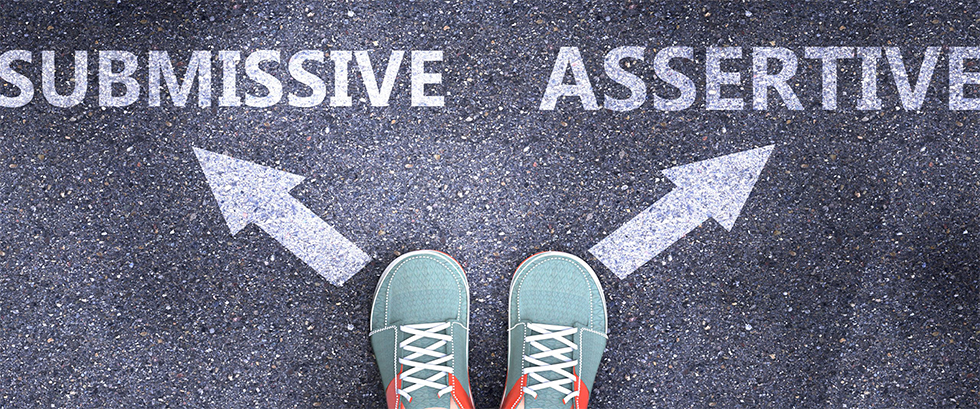Key Takeaways:
- You can be both assertive and respectful while communicating your feelings, thoughts, and ideas.
- Being proactive does not mean you are aggressive.
- You can learn to be assertive in therapy in order to improve your interpersonal relationships.
I often find my clients wondering how they can be more assertive in their interpersonal relationships. They fear being seen as too combative, difficult, or overbearing, and feel anxious that others will not want to be around them. For these individuals, there is a trend to use bad communication skills, like being passive-aggressive or “just going along with everything to please others” but feeling unhappy.
These individuals struggle to see a world where their needs can be addressed through direct conversation. Their passiveness can lead to neglecting their own ambitions, opinions, and most importantly, their unique voice.
These clients remind me of an ongoing question – how can you tell the difference between someone who is aggressive versus assertive?
It reminds me of a recent famous advocate, Swedish Activist Greta Thunberg. Despite only being 15-years-old when she first protested outside parliament to raise awareness on climate change, her voice rang strong and touched hearts globally.
Throughout her career, Thunberg’s outspoken nature helped her address even the most iconic powerful leaders in the world. Not only was she vulnerable in her expressions, but she forever changed the world’s perspective on climate change through her assertive stances.
She utilized the tool that is her voice by continuously being outspoken despite intimidation. Thunberg became a 2019 Nobel Peace Prize nominee, and was named one of the world’s most influential people by Time Magazine in 2019. Over the course of three years, Thunberg now not only addresses her parliament, but she speaks to the whole world.
The simple message of this story is this – our voices are stronger than any action we take. Behind a passionate speaker is someone who is willing to be assertive even under difficult circumstances.
In a world where being assertive can feel scary or intimidating, it’s important to remind yourself that you are worth having a voice in your life. You are capable of addressing your own needs, ambitions, and goals in life.
The question left to answer now is how can you learn to be assertive?
Being proactive in shifting your mentality about what it means to be assertive is a great place to start.
The clear distinction between someone who is assertive versus aggressive lends a hand to the presentation and extension of respect. Those who are assertive ensure they are respectful, honest, and confident in their ability to relay what is on their mind. They treat others with the same level of dignity that they would like in return.
Whenever you feel something bottling up inside because you fear being too assertive or worry how that can impact your image, remind yourself of these tips:
- Your communication style will greatly impact the way others perceive your words.
- You are capable and strong enough to verbalize your needs in a respectful way.
- You deserve to be heard.
- Communicating what you need and what you feel does not need to be hurtful.
- When you convey your own experience and focus on your perspective, you can be direct while allowing the other person to share their own version of the story.

Author: Anton Babushkin, PhD
Looking for a Therapist? Start My Wellness has highly experienced Licensed Therapists that are currently accepting new patients.


